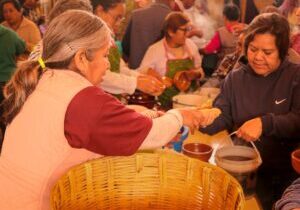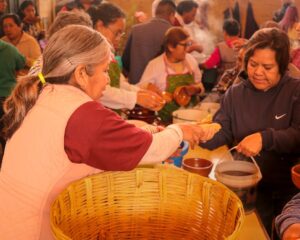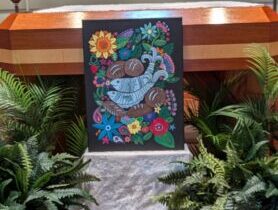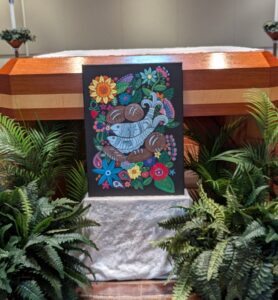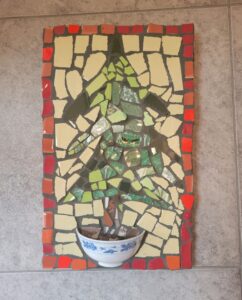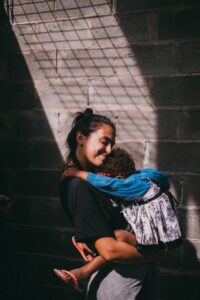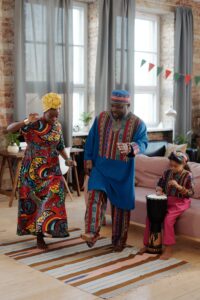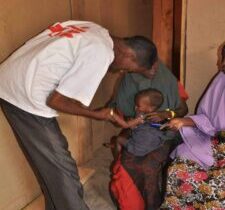Growing to Greatness in the Kingdom
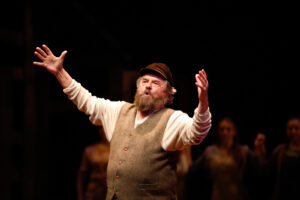 Tevya, in the musical, Fiddler on the Roof, is an ordinary man who must work hard to support his family. He dreams of being rich and all the privileges and comforts that being rich would bring. His musing turns into a song that sums it up. “If I were a rich man … all day long I’d biddy biddy bum, if I were a wealthy man … I wouldn’t have to work hard … I’d build a big tall house with rooms by the dozens right in the middle of the town…” He has many big dreams of all he could do and all the honors that would be his, “If I were a wealthy man!”
Tevya, in the musical, Fiddler on the Roof, is an ordinary man who must work hard to support his family. He dreams of being rich and all the privileges and comforts that being rich would bring. His musing turns into a song that sums it up. “If I were a rich man … all day long I’d biddy biddy bum, if I were a wealthy man … I wouldn’t have to work hard … I’d build a big tall house with rooms by the dozens right in the middle of the town…” He has many big dreams of all he could do and all the honors that would be his, “If I were a wealthy man!”
For better or for worse, Tevya is not alone in his dreams of a life of ease and honor. Most of us wish at one point or another that we had just a bit more, so we could do something that we hope and believe will be fun or make our lives easier.
Two of Jesus’ disciples, Zebedee’s sons James and John, also had high hopes and dreams. They came to Jesus and said, quite reasonably they thought, “We want you to do for us whatever we ask of you.” Whatever – not exactly a clear, specific request to which one might easily respond with a yes or no answer.
As it turned out, their request was not something small or insignificant. “Grant that in your glory we may sit one at your right and the other at your left.” In any sort of organization, business, family, community, those who sit at the right and left hands of the boss or leader have extraordinary power, privilege, and access.
Jesus didn’t laugh at them or tell them to “go jump in the lake” or anything that would belittle their request. Instead, he asked if they would be willing to go through the suffering that he would have to experience himself. “Can you drink the cup that I drink or be baptized with the baptism with which I am baptized?” (Note, baptism in this sense had nothing to do with being washed symbolically, plunged, into water and coming out a new person. This was being plunged into suffering, dishonor, and death.) They responded that they were willing and Jesus assured them that they would indeed share that suffering themselves. However, the honor of sitting in the place of honor in the kingdom was not his to give.
The other disciples were outraged when they heard what James and John were requesting. Jesus had to explain to all of them that the kingdom of God is not like the hierarchies of power and respect we see in society around us. It’s not the powerful who are the great ones. It’s the ones who serve others, who give themselves to bring justice for the poor and those who have no power. (Mk 10:35-45)
This is not an easy thing to do. It’s especially hard for those of us who have had lots of opportunities and privileges as they have grown up. For those whose lives and careers have focused on working hard and getting ahead socially, who have sacrificed so their children would have more opportunities to advance and live easier lives – this does not make sense at all. “I worked hard and got where I am without any hand-outs. Why should someone else get help? Why should I have to pay taxes so someone else can get by without working like I did?”
We hear this kind of thing all the time, especially during political campaign seasons. It’s hard to think of giving up what we have in order to share with those who have not had the same opportunities or social capital.
But that’s not how we are called to move forward and upward in the kingdom. “Whoever wishes to be first among you will be the slave of all.”
Those who challenge the powerful nearly always pay a high price, whether in terms of money, security, power, or reputation. The powerful do not like opposition. Think of those whom we have seen in even the past ten years or so – people brave enough to vote against the dictates of their political parties or who have stood up to aggressors who have tried to take the lands or property of those with less power. Many have been insulted. Some were voted out of office. All have experienced suffering because of their unwillingness to go along with something that is wrong or to bring suffering to those without power.
Those who choose to work for the common good and help the powerless gain access to the resources they need to move into a more secure life, these typically have to accept that they will never be rich. They will spend what they have to help their students, for example. They will share what they have with refugees. They will gather food that would be wasted and share it with the elderly or the poor.
The reward for many who oppose the powerful who are focused on themselves and their wealthy friends is persecution, ridicule, and sometimes loss of life. This is nothing new. The Prophet Isaiah describes one such person who suffers because of his faithfulness to the Lord’s call. The Servant is crushed in infirmity. Yet, in giving his life to counter the effects of wrongdoing (sin), the will of the Lord will be accomplished and the servant’s descendants will have more options. Many will be helped and saved because of the faithful service of one individual. (Is 53:10-11)
Through faithful service, each person grows gradually, step by step to greatness in the kingdom. Greatness does not come through money or influence. It comes through sharing the gifts we have. It comes from helping when it’s hard and forgiving when we have been hurt. In service we discover the presence of the Lord in the faith of those we meet along the way. Those who have little in the way of riches or power may have great wealth in their lives of faith and sharing.
Jesus himself went through all that we experience, from childhood, through adolescence, young adulthood, and moving into his role as an adult in his community. He had parents and relatives, the life of a skilled carpenter in his village, and a life of faith. He also became a traveling teacher and healer – a prophetic voice calling those he met to closer friendship with God. He experienced all aspects of human life, except sinning himself. When the time came, he gave his life in witness to the truth he had proclaimed. As the author of the Letter to the Hebrews reminds us, “we have a great high priest who has passed through the heavens, Jesus, the Son of God.” From him, we will find mercy and grace to help us in growing into the kingdom ourselves. (Heb 4:14-16)
One step at a time. One encounter at a time. One sacrifice at a time. One smile at a time. One gift of respect at a time. One sharing in our own riches and privilege at a time. One reaching out and walking hand-in-hand with a sister or brother human being.
We grow into the kingdom of God, the kingdom of Love.
Readings for the Twenty-ninth Sunday in Ordinary Time – Cycle B
Read More




